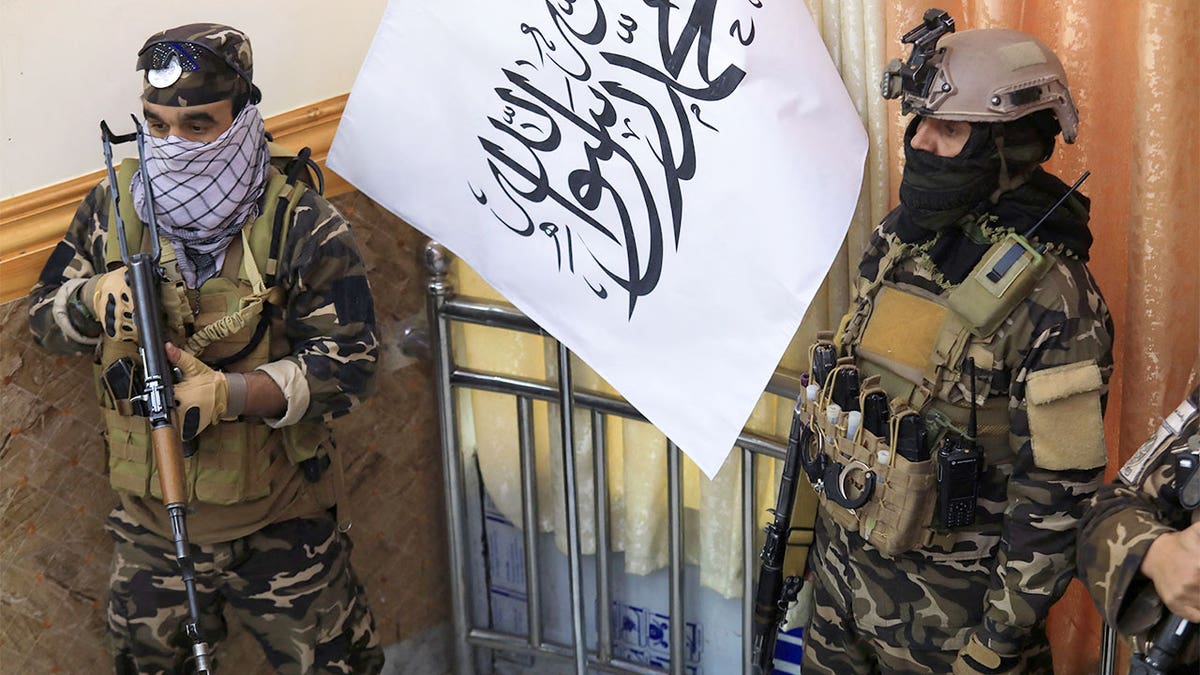Al Qaeda leader killed by drone on Kabul balcony
National Security Council coordinator Adm. John Kirby (Ret.) discusses the administration's effort to take out al Qaeda leader Ayman al-Zawahri in Afghanistan and weighs in ahead of Pelosi's anticipated visit to Taiwan
The hellfire missile strike, which eliminated al Qaeda leader Ayman al-Zawahri and resulted in no reported civilian casualties, was an extraordinary tactical counterterrorism success. Zawahri, who was indicted in 1998 for his role in planning the bombings of U.S. embassies in East Africa, was a high value target, whom the intelligence community has hunted for decades.
But the strike also reflected a strategic failure because the same toxic mixture of a Taliban regime providing sanctuary to al Qaeda, which resulted in the 9/11 terrorist attacks, has been repeated following the chaotic U.S. withdrawal from Afghanistan last summer.
Afghanistan has morphed into a failed terrorist state. Both al Qaeda and ISIS have a growing presence, which threatens the region and beyond.
For the Taliban, their past is prologue. As they did before 9/11, the Taliban is deliberately providing safe haven to al Qaeda. Zawahri was killed on a balcony in the Sherpur district of downtown Kabul, a stone’s throw from the former British embassy. Taliban acting Minister of Interior Sirajuddin Haqqani, whom the U.S. Department of State designated a Global Terrorist in 2008 over the Haqqani Network’s alliance with al Qaeda, reportedly oversaw Zawahri’s security and arranged what turned out to be a not very safe, "safe house" for Zawahri, and his family.

Taliban fighters stand guard next to a Taliban flag during a gathering where Afghan Hazara elders pledged their support to the country's new Taliban rulers, in Kabul on November 25, 2021. (Photo by AREF KARIMI / AFP) (Photo by AREF KARIMI/AFP via Getty Images) (AREF KARIMI/AFP via Getty Images)
The Taliban extended their safe haven to the Pakistani Taliban, which has Pakistan’s civilian population, government, and nuclear program in its crosshairs.
Suffering from a humanitarian crisis under a Taliban regime skilled in insurgency but not basic government, Afghanistan is a virtual magnet for terrorist recruitment.
Afghanistan is once again a source of regional instability, awash in both terrorist fighters and ungoverned space, which we learned from 9/11, represents a clear and present danger to our homeland.
The successful strike on Zawahri, the first reported counterterrorism operation in Afghanistan since the U.S. withdrawal, does not prove the efficacy of the Biden administration’s "over the horizon" strategy," an otherwise pleasant sounding phrase, which fails to acknowledge the significant degradation of the find, fix and finish counterterrorism capability in Afghanistan, which has kept our nation safe since 9/11.
CLICK HERE TO GET THE OPINION NEWSLETTER
And let’s be clear. The horizon is on the edge of our vision over land or water. It is impossible to see over the horizon. The strike on Zawahri was above the dead terrorist’s horizon. The intelligence community tracked Zawahri like a patient sniper, reportedly for more than six months, not over the horizon but close enough without being spotted to confirm Zawahri’s identity and precise location. This one strike, as monumental as it was, does not prove the U.S. counterterrorism mission in Afghanistan can proceed at the tempo required sufficiently to degrade al Qaeda’s and ISIS’s increasing capacity to do us harm.
Effective counterterrorism operations depend on collecting intelligence from human sources. The complexity and challenge to the CIA’s mission to recruit spies and steal secrets without an official presence and embassy in Kabul, has grown exponentially. We also lost our most effective ally in the region, the former government of Afghanistan, whose intelligence officers and soldiers were a powerful force multiplier in the fight against terrorism.
CLICK HERE TO GET THE FOX NEWS APP
Let’s therefore remember that the Taliban’s alliance with al Qaeda makes Afghanistan more of a threat to our nation than any time since 9/11.
And we should not allow this counterterrorism success, as momentous as it was, to lull us into a false sense of security about our capability going forward to detect and preempt threats emanating from Afghanistan before they are visited on our shores.











































